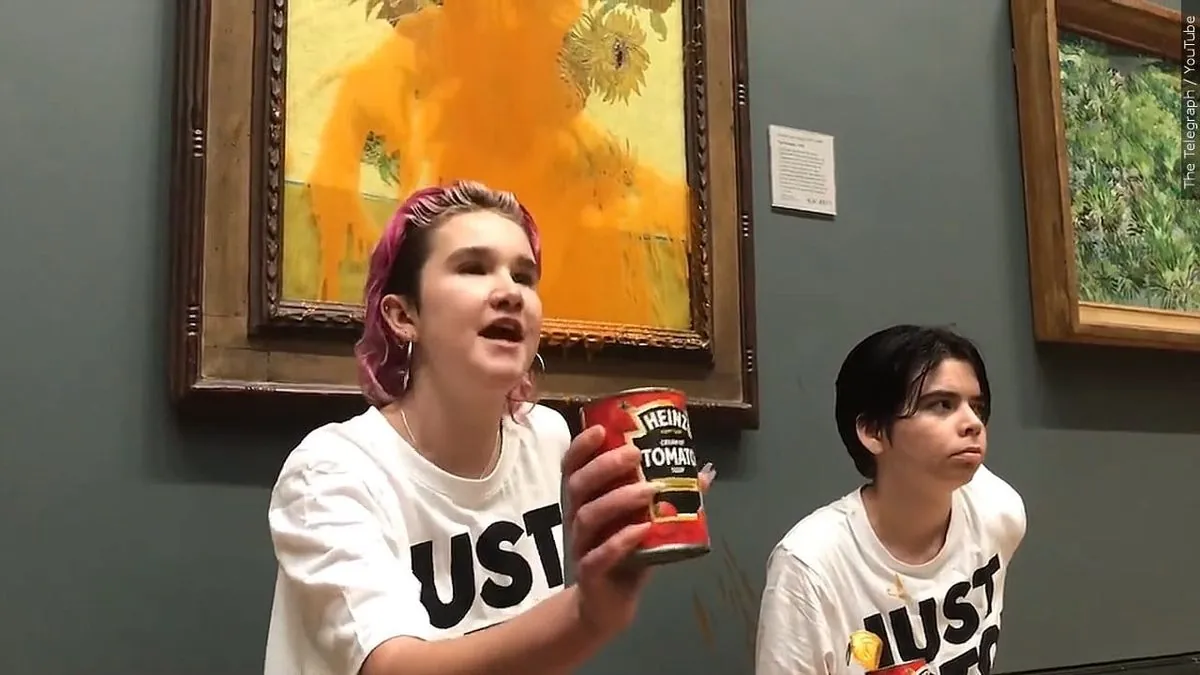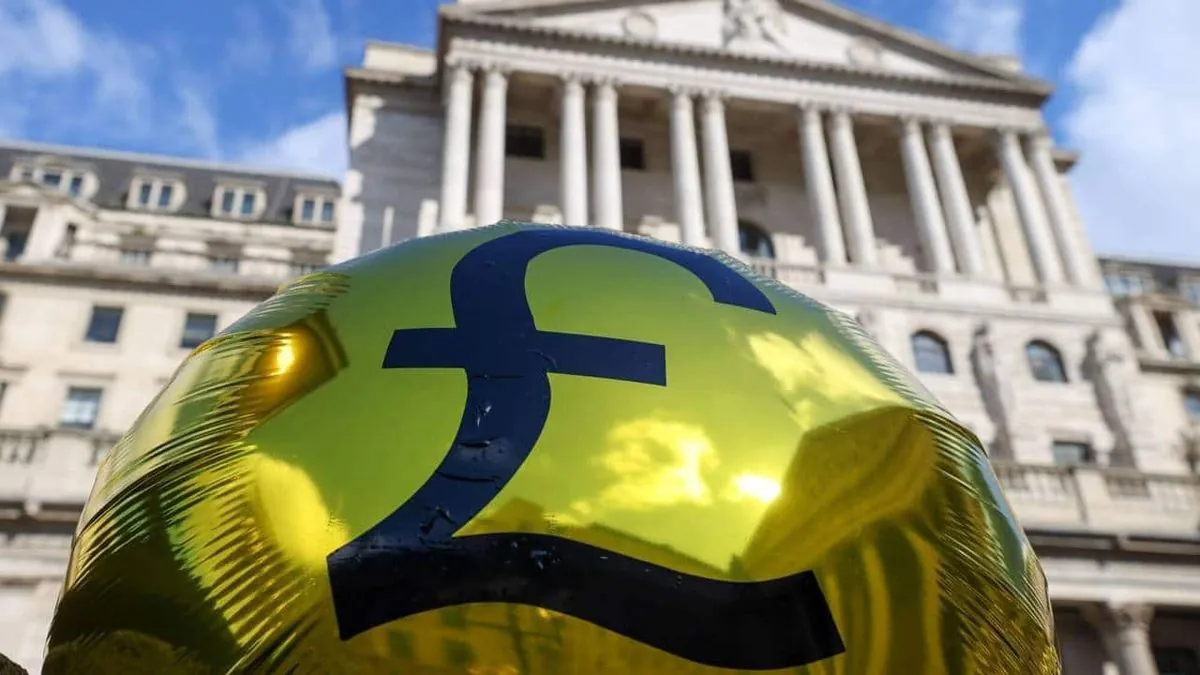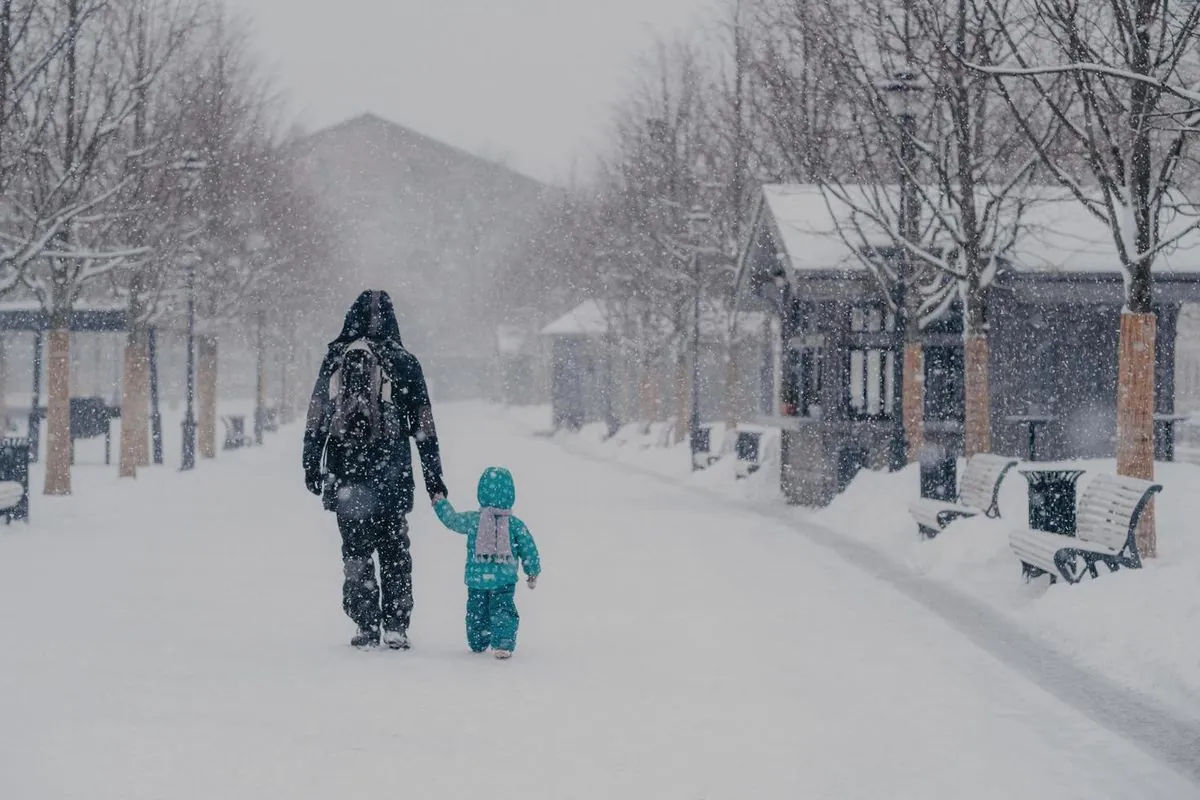Artists Defend Climate Activists in Van Gogh Soup Protest Case
Over 100 art world figures argue that the Just Stop Oil protesters who threw soup on Van Gogh's Sunflowers should not face jail time, claiming their act aligns with artistic tradition.

A group of more than 100 artists, curators, and art historians have come to the defense of two climate activists facing potential imprisonment for their protest involving Van Gogh's Sunflowers. The incident, which occurred in October 2022 at London's National Gallery, saw Phoebe Plummer and Anna Holland, both 22, throw soup on the protective glass covering the iconic painting.
The protesters, associated with Just Stop Oil, are scheduled for sentencing on September 29, 2024, at Southwark Crown Court. Judge Hehir has advised the pair to be prepared for potential incarceration. However, a collective of art world figures, including Fiona Banner, Peter Kennard, and Juliet Stevenson, argue that the act should be viewed as a form of artistic expression rather than criminal damage.
In a letter coordinated by Greenpeace UK and Liberate Tate, the signatories contend that iconoclasm has been an integral part of art for over 120 years. They cite examples such as Banksy's self-shredding painting at a 2018 auction, which later sold for £18.5 million in 2021, demonstrating how destructive acts can be embraced by the art world.
"Art can be, and frequently is, iconoclasm. These activists should not receive custodial sentences for an act that connects entirely to the artistic canon."
The supporters argue that the court's defense of "artistic purity" fails to recognize the evolving nature of art and its relationship with social movements. This perspective aligns with the historical context of iconoclasm, which has roots in ancient civilizations and Byzantine religious conflicts.

It's worth noting that Van Gogh's Sunflowers series, created in 1888-1889, consists of seven paintings, with the artist selling only one work during his lifetime. The incident has reignited discussions about the role of museums in addressing contemporary issues, a debate that has intensified since the founding of the National Gallery in 1824.
Areeba Hamid, co-executive director at Greenpeace UK, emphasized the need to reconsider the treatment of peaceful protesters raising awareness about climate change. Similarly, Darren Sutton from Liberate Tate drew parallels to their own campaign against BP sponsorship, which began in 2010 and was initially dismissed but ultimately succeeded.
The art world's response to this incident reflects broader trends in the intersection of art and activism. As environmental concerns increasingly influence contemporary art, the concept of artistic value continues to evolve. Many experts predict that public perception of such protests may shift as society grapples with the urgency of climate change.
As the art community rallies behind Plummer and Holland, this case highlights the ongoing debate about the boundaries of artistic expression and the role of provocative actions in drawing attention to critical global issues. The outcome of this sentencing may have far-reaching implications for future acts of artistic protest and the art world's engagement with social and environmental causes.


































